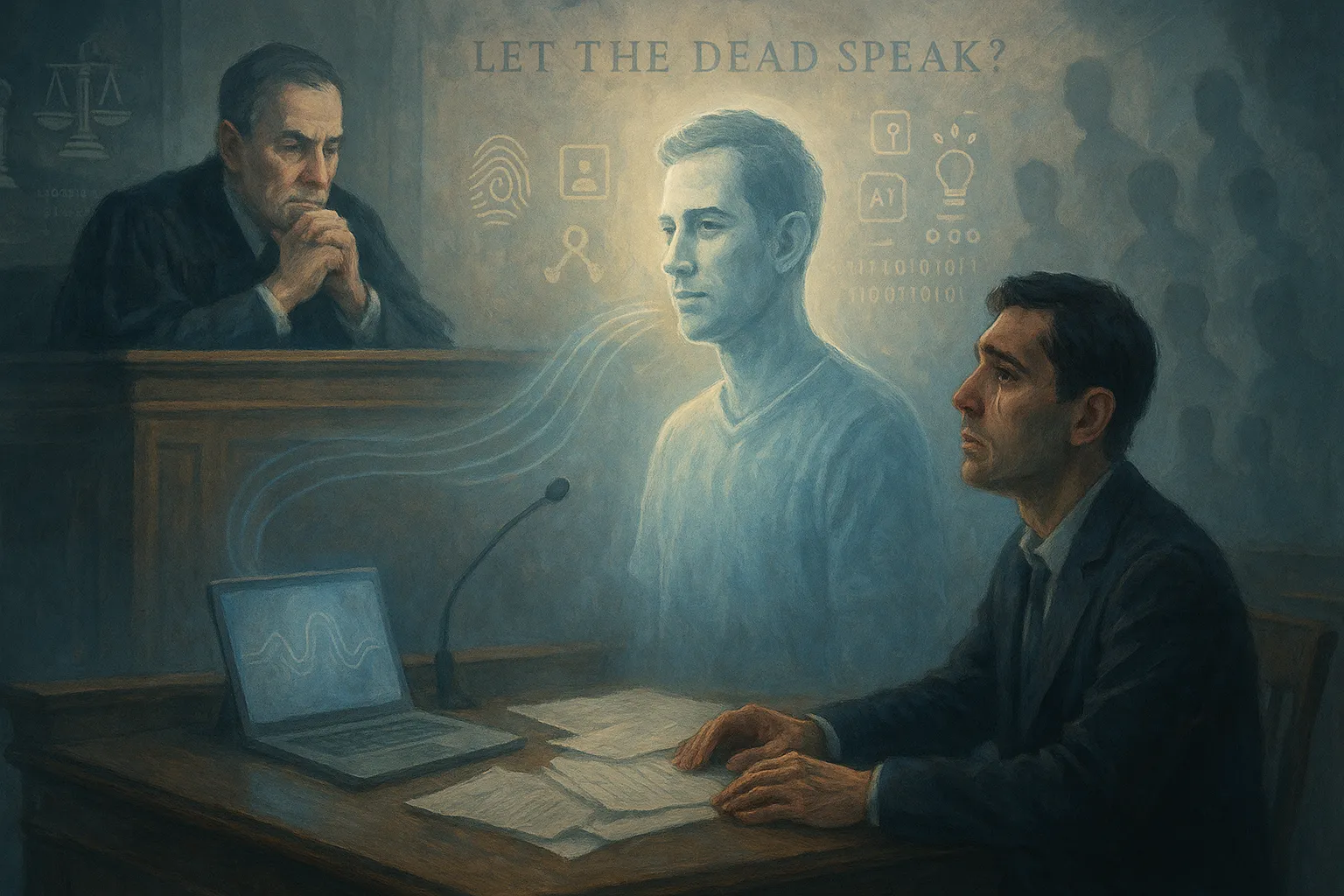An Arizona courtroom witnessed an unusual speaker last week: a man who'd been dead for two years. Christopher Pelkey, killed in a 2021 road rage incident, addressed his killer through an AI-generated version of himself, complete with his likeness and voice, NBC News reports.
The AI Pelkey did something unexpected. He offered forgiveness to Gabriel Paul Horcasitas, who received a 10.5-year maximum sentence for manslaughter. "In another life, we probably could have been friends," the digital apparition told his killer, proving that even artificial ghosts can be remarkably gracious.
The idea came from Pelkey's sister Stacey Wales and her husband, both AI professionals. After two years of struggling to write a victim impact statement, Wales had an epiphany: let her brother speak for himself. Well, sort of.
The judge embraced the high-tech testimony, but defense lawyer Jason Lamm wasn't as impressed. He's planning an appeal, arguing that perhaps letting a computer-generated dead person address the court crosses a line. One can almost hear future law students sighing over this addition to their required reading.
Why this matters:
- We've entered an era where "death do us part" comes with an asterisk: *Unless you have good AI engineers in the family
- This case forces us to wrestle with an uncomfortable question: If a digital version of someone speaks in court, but that person is deceased, should judges listen? The legal system might need a software update
Read on, my dear:










